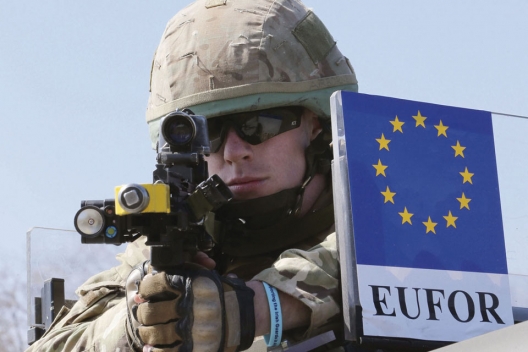 Europe’s eastern neighborhood is marked by the crisis in Ukraine. Following Russia’s illegal annexation of Crimea, and further Russian revanchism in eastern Ukraine, relations with Putin’s Kremlin need to be reconsidered. Geographic proximity, historical ties, and energy dependence make Russia a key partner for the future of Europe, but Putin’s foreign policy poses a direct challenge to European security and unity.
Europe’s eastern neighborhood is marked by the crisis in Ukraine. Following Russia’s illegal annexation of Crimea, and further Russian revanchism in eastern Ukraine, relations with Putin’s Kremlin need to be reconsidered. Geographic proximity, historical ties, and energy dependence make Russia a key partner for the future of Europe, but Putin’s foreign policy poses a direct challenge to European security and unity.
Meanwhile, Europe’s southern neighborhood is still caught up in a highly uncertain process of sociopolitical transition. In some cases – such as Tunisia – the process has been successful; elsewhere, as in Syria, the course of events has been discouraging, to say the least.
To some extent, Europe seems to have abandoned the Mediterranean’s southern shore, compensated in part by flows of economic aid from the Gulf countries. For the Arab world, which was previously reluctant to display such solidarity – witness Palestine, where European money sustains basic services – this is a welcome novelty. Nonetheless, it will be difficult for North Africa to recover without greater EU involvement.
Javier Solana was EU High Representative for Foreign and Security Policy, Secretary-General of NATO, and Foreign Minister of Spain. He is currently President of the ESADE Center for Global Economy and Geopolitics and Distinguished Fellow at the Brookings Institution.
Image: EUFOR soldier (photo: UK Ministry of Defense)
